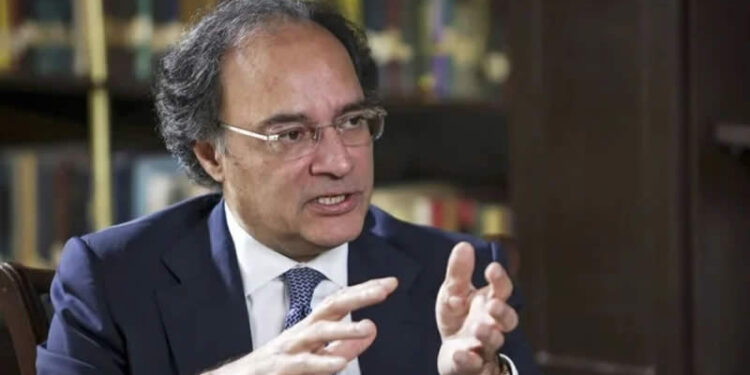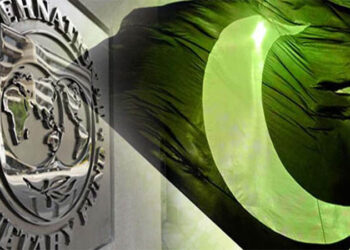Pakistan is seeking to re-profile over $27 billion in debt and liabilities with China, Saudi Arabia, and the UAE to secure a 37-month IMF bailout package. This move aims to ease energy sector foreign exchange outflows and consumer tariffs.
On Sunday, Finance Minister Muhammad Aurangzeb announced that Islamabad has already requested these friendly nations to roll over more than $12 billion in annual debt for three to five years to gain the IMF board’s approval for a $7 billion economic bailout by next month.
In addition to this, Islamabad has asked Beijing to convert imported coal-based projects to local coal and re-profile more than $15 billion in energy sector liabilities to create fiscal space amid repayment challenges.
Pakistan’s financial arrangement with these three countries involves commercial loans and SAFE deposits that are annually rolled over and constitute a significant part of the IMF program in terms of external financing needs.
The maturity period of these loans—$5 billion from China, $4 billion from Saudi Arabia, and $3 billion from the UAE—is now being requested to extend to at least three years, providing greater predictability under the IMF program.
Speaking at a news conference after returning from China, Aurangzeb said the Chinese side acknowledged Pakistan’s foreign exchange difficulties and expressed willingness to help with new business ventures and the re-profiling of energy sector payments, in addition to supporting Pakistan’s case at the IMF board as a major stakeholder.
The debt and equity rescheduling process has begun and will now move to working groups with relevant financial institutions and sponsors of Chinese projects. Pakistan is hiring local Chinese consultants for this process.
“Between now and the IMF board meeting (on the 37-month bailout package), we have to ensure confirmation of external financing” from friendly bilateral partners, the minister said. He clarified that the Chinese energy sector debt re-profiling is independent of the IMF program as other prior actions have been completed and structural benchmarks are being implemented.
Aurangzeb emphasized that he is in contact with the finance ministers of China, Saudi Arabia, and the UAE for a three-year debt rollover extension, assuring that this support will place Pakistan in a comfortable position regarding its external financing gap.
“I can assure you we are at a very good place on external financing for the next three years, including year-one, year-two, and year-three,” he stated.
Without seeking incremental financing, Aurangzeb explained that the IMF had calculated a financing needs assessment for three years, including its own $7 billion Extended Fund Facility. Rollovers from friendly countries will make the remaining external financing gap manageable.
Addressing the energy sector repayments, Aurangzeb mentioned that Prime Minister Shehbaz Sharif initially raised the issue with President Xi Jinping of China during his Beijing visit, followed by formal letters to Prime Minister Li Keqiang. Subsequent discussions involved converting Chinese power projects to local coal and financial re-profiling with banks and project sponsors.
Aurangzeb noted that the reprofiling of CPEC debt was also discussed with the governor of the Chinese central bank, stressing the need for project-by-project negotiations given the CPEC structure.
He emphasized that Pakistan is seeking the reprofiling of payments and not “haircuts”—debt waivers or interest rate cuts—and highlighted the importance of long-term structural solutions for economic challenges. He acknowledged the difficulties faced by all segments of society due to high interest rates, energy prices, currency devaluation, and increased tax burdens, but stressed the necessity of tough measures given the loss of fiscal space.
“We have no more choice of doing what we have been doing in the past for short-term relief and objectives,” Aurangzeb concluded.













